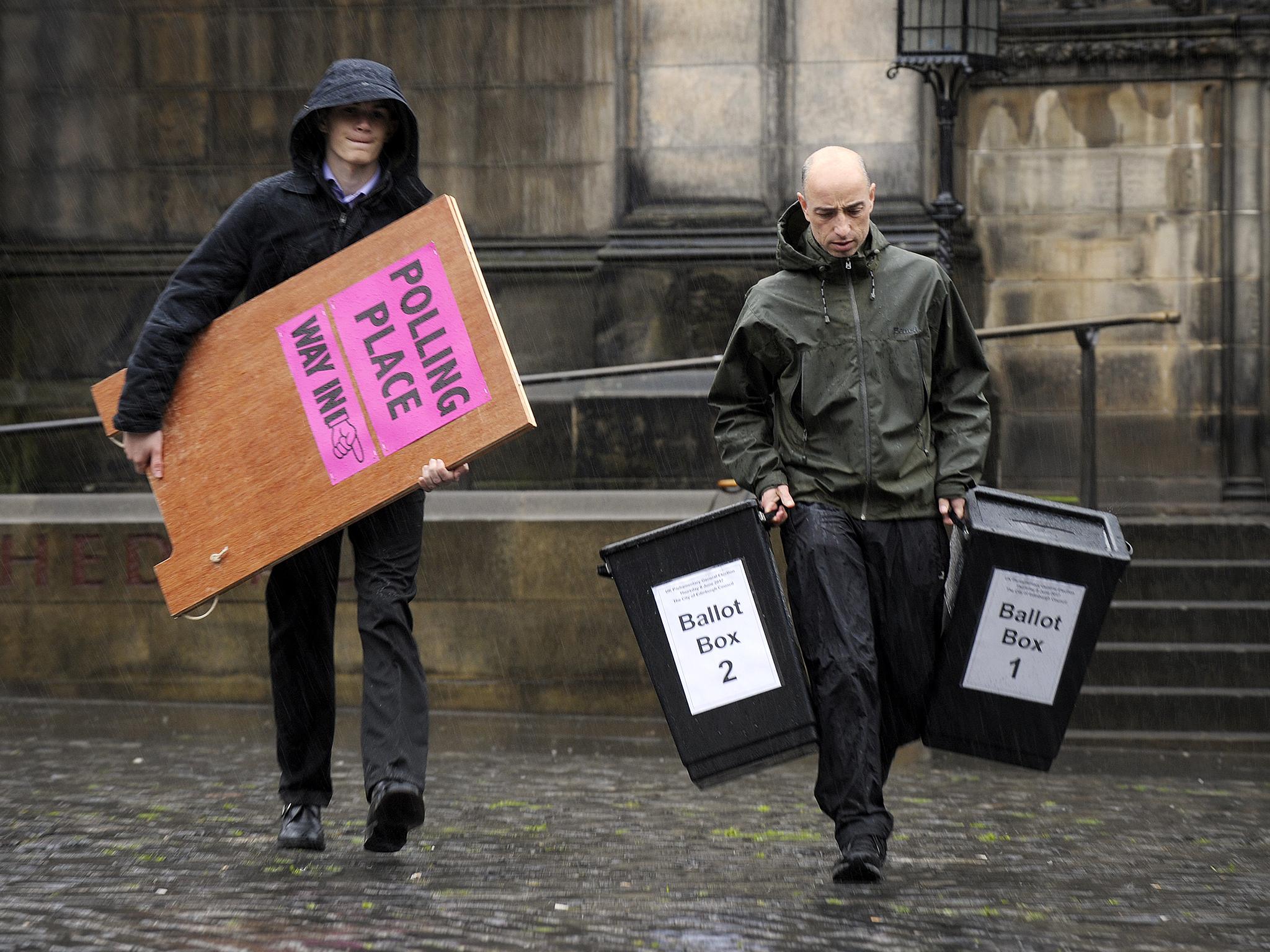Ministers vow to press ahead with voter ID trials despite hundreds being turned away from polling stations
Electoral Reform Society claims: ‘The pilots have categorically failed to show that already marginalised groups would not be disenfranchised, raising real concerns for political equality’

Your support helps us to tell the story
From reproductive rights to climate change to Big Tech, The Independent is on the ground when the story is developing. Whether it's investigating the financials of Elon Musk's pro-Trump PAC or producing our latest documentary, 'The A Word', which shines a light on the American women fighting for reproductive rights, we know how important it is to parse out the facts from the messaging.
At such a critical moment in US history, we need reporters on the ground. Your donation allows us to keep sending journalists to speak to both sides of the story.
The Independent is trusted by Americans across the entire political spectrum. And unlike many other quality news outlets, we choose not to lock Americans out of our reporting and analysis with paywalls. We believe quality journalism should be available to everyone, paid for by those who can afford it.
Your support makes all the difference.Ministers have vowed to press ahead with extending voter ID trials, despite hundreds of people being turned away from polling stations during a trial, and concerns the move could disproportionately affect poorer and ethnically diverse communities.
The pledge comes as the Electoral Commission said the first trials, at May’s local elections, “worked well”, and said the number of people who did not vote because they failed to show identification was “very small”.
The commission’s research showed 1,036 people – 0.6 per cent of voters – who tried to vote in the areas participating in the pilot were turned away because they did not have the correct identification.
Of those, 350 people (0.2 per cent) did not return to vote with the correct identification.
Announcing the government’s plans to continue with the trials, Chloe Smith, the constitution minister, said: “The success of the voter ID pilots proves that this is a reasonable and proportionate measure and voters were fully aware of the changes on polling day.
”We plan to continue to pilot ID [voting] at next year’s local elections so we can explore further what works best for voters.”
Labour described the government’s plans as “dangerous” and said trials of the scheme in May’s local elections in Bromley, Gosport, Swindon, Watford and Woking, were “shambolic”.
“We know that voter ID has a disproportionate impact on older, poorer or ethnically diverse communities, yet none of the pilot’s [local] authorities have significant populations with these demographics,” said the party’s shadow minister for voter engagement and youth affairs, Cat Smith.
Ms Smith added it is impossible to determine the number of voters put off from entering polling stations and, as a result, the true impact of voter ID trials.
The Electoral Reform Society (ERS) told The Independent the trials had “totally failed to allay concerns that innocent voters would be denied a say” if the policy is rolled out for national elections.
Jessica Garland, director at the ERS, added: “The pilots have categorically failed to show that already marginalised groups would not be disenfranchised, raising real concerns for political equality.
“This experiment must not be a fait accompli for a UK rollout. The policy risks being a dangerous distraction from the pressing issues our democracy faces – from our outdated campaign regulations to a broken voting system.
In its independent evaluation, the Electoral Commission said it found “little evidence” of a negative impact on voters, “with few deterred by the need to show identification”.
It added: “Overall, the voter identification requirements trialled in May 2018 worked well.
“Nearly everyone in the five pilot scheme areas who went to vote in their polling station was able to show identification without difficulty. The number of people who did not vote because they couldn’t show identification was very small.”
Craig Westwood, the Electoral Commission’s director of communications and research, said: “From the experience of voters, to the staff delivering the pilots, the overall picture from these pilots is a positive one.
“The next step should be to test the requirement for voter identification in areas with different demographics.
“It will be important to develop the evidence base about the impact of voter identification on different groups of people. No eligible elector should be prevented from voting because of voter identification requirements.”
Join our commenting forum
Join thought-provoking conversations, follow other Independent readers and see their replies
Comments